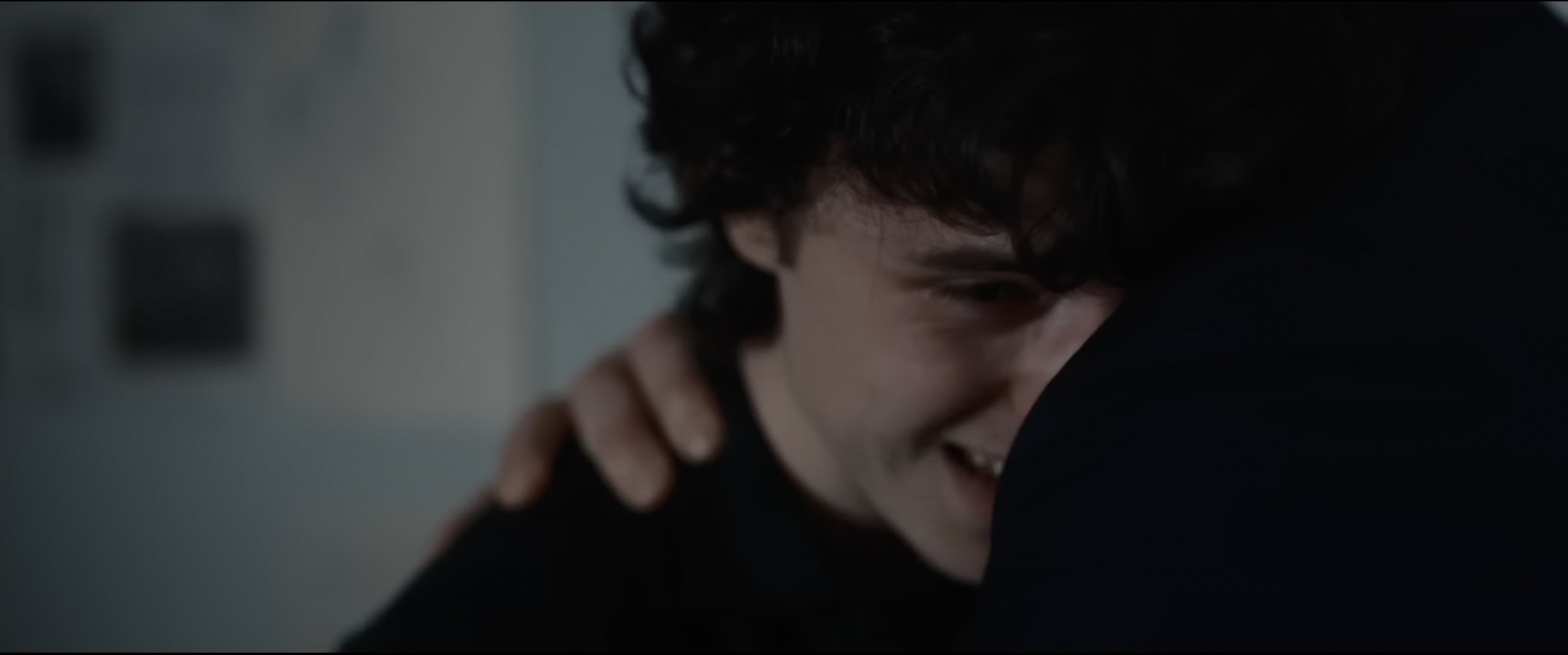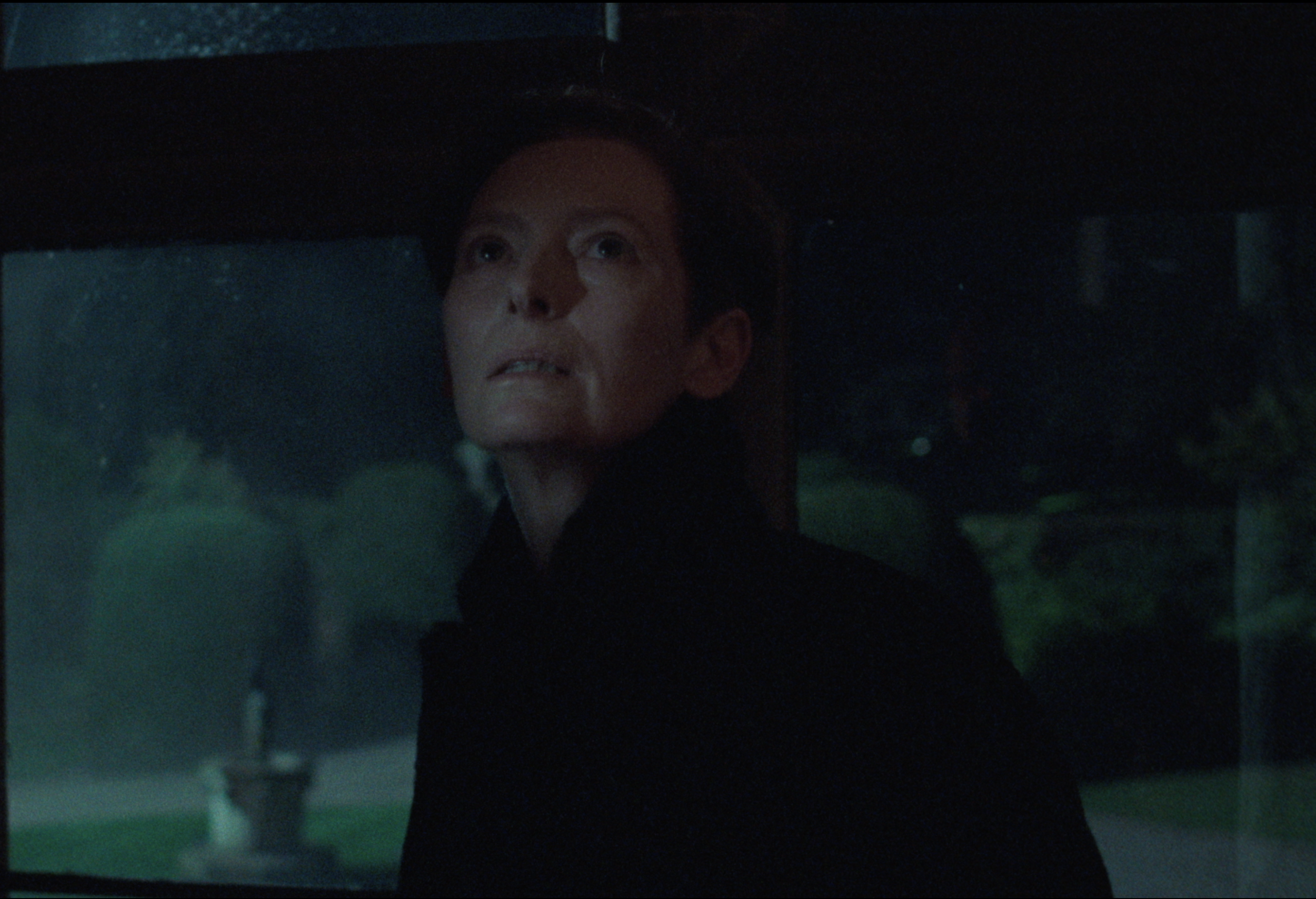The Son Directed by Florian Zeller
The Son
Directed by Florian Zeller
Starrings: Vanessa Kirby, Hugh Jackman, Laura Dern, Anthony Hopkins, Zen McGrath, William Hope, Joseph Mydell, Akie Kotabe, Isaura Barbé-Brown, Erick Hayden, Shin-Fei Chen, Danielle Lewis, George Cobell
Country: UK, France
Year 2022
Review Author: Roberto Matteucci
Click Here for Italian Version
“Is my baby I can't abandon him.”
Adolescence is a period of serenity, of happiness, exclusively in the memories of old age, because they have overcome that time and they are still alive. In adolescence, anguish, fear, anger prevail, like Paul Nizan, a twenty-year-old on his trip to Aden:
“J'avais vingt ans. Je ne laisserai personne dire que c'est le plus bel âge de la vie.
Tout menace de ruine un jeune homme : l'amour, les idées, la perte de sa famille, l'entrée parmi les grandes personnes. Il est dur à apprendre sa partie dans le monde.” (1)
Facing these challenges can provoke rifts. Teenagers seek refuge in themselves, in solitude, in misogyny, in resignation, in agitation, in not sleeping, in feeling empty. They exclude their family, boycotting the school they thinks are useless.
In every family, there is a phase of generational confrontation, often problematic, with adolescent children. A classic moment that is overcome with time, growth, maturity. Often, it does not depend on mood behaviours but it can cover something worse.
Behind these unfriendly attitudes, a youthful depression can be hidden. The difficulty is recognizing it, discovering obscure symptoms:
“Many people still believe that depression, and especially teenage depression, is not really a disease, that a youngster who is persistently and irrationally sad, uncommunicative, deliberately with drawn and isolated, angry, irritated, or overly sensitive to criticism is just suffering ordinary "growing pains" and should pull herself together, snap out of it, and get on with growing up. …” (2)
Parents, after recognizing the question, oppose and deny it. It happens because of pride or a wrong feeling. They deceive themselves into thinking that their love or help is enough to heal him:
“Clinical depression, which entails a number of extremely debilitating physical and psychological symptoms … is a serious disease that can do terrible and even permanent damage to a teenager's developmental progress. Like other serious diseases, it requires professional attention, with treatments that are both medical and psychological.
Failing to treat the illness when it occurs can have dreadful conse-quences, up to and including death by suicide.” (2)
It is the tragic conclusion of psychiatrists Maureen Empfield, M.D. and Nicholas Bakalar in the book Understanding Teenage Depression. A Guide to Diagnosis, Treatment and Management (Henry Holt and Company, New York, 2001).
Adolescence depression is the dramatic argument of the film The Son by director Florian Zeller, presented at the 79th Venice Film Festival.
An off-screen chant, it is a lullaby. A woman and a child. A man, Peter, comes in. They are in New York. Peter is an important person. He works at a law firm and supports the Delaware Senate candidate in the primaries. Peter is divorced. He is now remarried to the beautiful Beth, who is pregnant.
With his first wife, Kate, he has a son, Nicholas, a typical seventeen, who has never caused character problems. Something has changed. Nicholas wants to leave his mother's house to live with his father. Why this sudden decision?
Nicholas has become lonely, lost his friends, his girlfriend, is grumpy, sad. He is a liar. Every morning he walks to school, but it is false. Events worsen, Nicholas risks hurting himself. The clinic psychiatrist examines him. The diagnosis is harsh. Nicholas is depressed. He suffers from acute depression. He has to stay hospitalized. Nevertheless, Nicholas ruthlessly lies to his parents. He convinces them to authorize his return home. He swears he can heal himself. The doctor warns them. He accuses them of following dangerous sentimentalists: Nicholas is ill and pretending.
One day, when he is alone, Nicholas discovers a firearm hidden by his father in the back of the washing machine.
The themes are melancholic: family and poor parental preparation. After, there are depression and suicide. Difficult issues must be handled delicately.
What cultural knowledge do parents have about tackling their children's depression?
During an interview, the director describes the subjects:
“Sometimes simplicity is the hardest thing to achieve in order to tell that story from Peter’s perspective, those who are around someone who’s suffering, and they don’t know how to deal with that. He’s trying hard to help his son. He is a loving father. He wants to open a door, but he doesn’t have the keys. This is the feeling and the frustration I wanted the audience to feel. Sometimes love is not enough. You can have the best intentions. Sometimes it’s not enough when you’re not capable just to face the right questions. This is what happens with this character who is in a way completely blind and he’s blind because he feels guilty, because he thinks that everything is his fault, and he wants to repair what he thinks he has destroyed.” (3)
Peter is successful. He is an authoritative lawyer, with the possibility of a political career. He loves his two families. He loves Beth, he is ecstatic about new fatherhood. They are a happy couple. He has a positive relationship with his ex-wife and maintains paternal behaviour with Nicholas, following him in his life. Parents, due to disproportionate commitments and distraction, lose sight of their children, do not comprehend their problematic developments: “He is a loving father”. Love is not sufficient and love will lead Nicholas to make the definitive gesture. They could have listened to the psychiatrist, they could have left him in the hospital and perhaps everything would have been different. Why did Peter and Kate comply with Nicholas' clearly false requests? They believe their affection is capable of curing him: “He’s trying hard to help his son. ... He wants to open a door, but he doesn’t have the keys.” They do not have the skills, they do not understand Nicholas' illness, mistaking it for normal teenage discomfort. Instead, it was something worse, and they refuse to be helped: “Sometimes it’s not enough when you’re not capable just to face the right questions.”
The director's other point concerns who is to blame for Nicholas' depression? Have parents made mistakes? Is it the responsibility of their divorce? Peter feels guilty. He thinks he was a bad father, maybe he was not close to him. The sense of guilt pushes him to resolve it, but he fails again. Peter has no fault. His separation is not the reason. There have been many broken marriages, but the children have not become depressed. Florian Zeller confirms this:
“... as there’s no clear explanation and in a way is no one’s fault. But because we’re human, we feel guilt. Of course, we mention that there was a divorce, but my plan was absolutely not to tell a story about what could happen if you get divorced, because that is not what I believe. But we try to find explanations for what we’re going through, especially mental health. And in the son’s perspective, he doesn’t understand why he’s going through this pain, so it needs to have an explanation and the easiest way to understand it is that it’s because of his parents. This is what we do.” (4)
It would have been easier if the origin was explicitly identifiable but in depression, it is very difficult.
Peter is tormented by Nicholas' situation. He does not run away, he does not hide, he does not delegate him to Kate but helps him personally. Peter is strong-willed, intelligent, brilliant, educated, optimistic. He loves Beth and is joyful about his paternity.
Besides, he does not want to be like his father. In an intense scene, he meets him in his large and elegant villa. The dialogue between them is brutal for lack of tenderness. He is a formal character without merit. Peter rejects his system, so he would like to be different. He focuses on Nicholas and gives up his political promotion.
He tried to check on Nicholas. It is uncertainty that produces apprehension. The son sometimes dances with him, or even with Beth, at other moments, Nicholas angrily assails them.
The Son is powerful. Feverish, passionate. Both Peter and Nicholas psychologies are perfectly conceived. The two women also contribute to the creation of tension. Especially Beth, as she has reluctantly accepted Nicholas' presence. The conflict is evident, certain, qualifying. He is a minor, he should have other troubles, not lock himself up depressed in the house. The consequences are paternal failure: Nicholas leaves the hospital. The twist is awaited. The tension increases with the repeated framing of the washing machine. Behind it, there is the ultimate tool to achieve liberation:
"The audience knows all along that they’re watching a tragedy, so they always have a sense of where the film is taking them," the filmmaker says. "There's a gun mentioned early on in the film and, as Chekhov said, when you have a gun in the first act, it has to go off in the third." The audience, then, is always on-guard knowing that the gun could go off, but Zeller wanted both viewers and his actors be unprepared when it actually does.” (5)
Florian Zeller is an excellent director, attentive to details and sophisticated human descriptions.
In the film, the sounds of the next frame enter the present one. The editing is alternated. The washing machine is interspersed with other scenes. Or, the sequence with the psychiatrist. He explains the reality but the parents are determined to release their son. Notwithstanding, by the doctor's posture, one can guess the imminent tragedy, despite the author attempts to cheat the public by procrastinating the ending with an unreal sequence.
The past was cheerful, but there is no outlook for the future. It is the past of a loving father with his child. Sensitive sensations, sweetly narrated in many flashbacks. It is a solar sequence, by the sea, on the beach, dad and son have not yet known the future darkness.
Even Peter is confused: he forgot to ask his wife about the paediatrician's visit; will he be turned into the father?
The film has an energetic, solemn, logical atmosphere. The ethical elements of good and evil are treated honestly, without taking sides, without judging. The disease exists and a solution must be found, no matter who made an error.
The camera is always on the parents, the actors have an essential role. Proximity is used to read the protagonists' consciences. The editing is diligent. For example, the ellipses: films Peter's face upside down on the reflection of the table.
Paul Nizan, Aden Arabie, République des Lettres https://www.google.com/books/edition/_/mfsiCwAAQBAJ?gbpv=1
Maureen Empfield, M.D. e Nicholas Bakalar, Understanding Teenage Depression. A Guide to Diagnosis, Treatment and Management, Henry Holt and Company, New York, 2001https://www.google.it/books/edition/Understanding_Teenage_Depression/wYETAAAAQBAJ?hl=it&gbpv=1&dq=DEPRESSION+TEENAGER&printsec=frontcover
https://aframe.oscars.org/news/post/florian-zeller-christopher-hampton-the-son-interview





















A metaphorical comparison between Akira Kurosawa’s Ikiru and its remake Living by Oliver Hermanus, presented at the 79th Venice Film Festival.